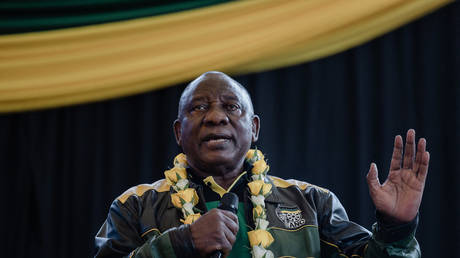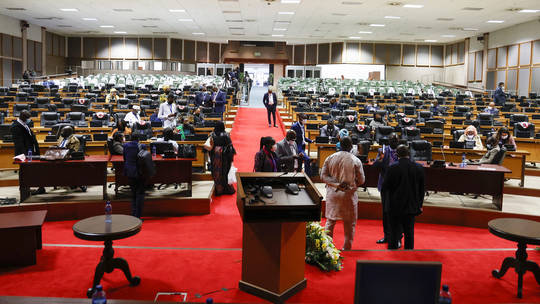VANGUARD
A temporary ceasefire in Sudan has been agreed as fighting between two warring factions entered its sixth week, BBC reports.
Previous truce attempts between Sudan’s regular army and the paramilitary Rapid Support Forces have tended to collapse within minutes of beginning.
But the new deal will be enforced by a “ceasefire monitoring mechanism,” according to a US-Saudi statement.
As part of the seven-day humanitarian ceasefire, Sudanese officials have agreed to restore essential services.
Fighting between the two sides has plunged the country into chaos since it began last month, with more than a million people thought to have been displaced.
Stocks of food, money and essentials have fast declined and aid groups repeatedly complained of being unable to provide sufficient assistance in Sudan’s capital Khartoum, where much of the violence has taken place.
Both the regular army and the RSF have been urged to allow the distribution of humanitarian aid, restore essential services and withdraw forces from hospitals.
The United States and Saudi Arabia, who sponsored the peace talks in Jeddah, said the ceasefire would come into effect on Monday evening.
In a statement, the US State Department acknowledged previous failed attempts at brokering peace in Sudan but said there was a key difference this time.
“Unlike previous ceasefires, the agreement reached in Jeddah was signed by the parties and will be supported by a US-Saudi and international-supported ceasefire monitoring mechanism,” it said, without giving more detail.
Taking to Twitter, US Secretary of State Antony Blinken added, “It is past time to silence the guns and allow unhindered humanitarian access.
“I implore both sides to uphold this agreement – the eyes of the world are watching.”
The war broke out in Khartoum on 15 April following days of tension as members of the RSF were redeployed around the country in a move that the army saw as a threat.
There was also a power struggle between Sudan’s regular army chief Abdel Fattah al-Burhan and his former deputy Mohamed Hamdan Daglo, who leads the RSF.
Hundreds of people have been killed in the fighting and the UN has warned of a worsening situation in Africa’s third-largest country, where a huge number of people already relied on aid before the conflict.
It has been two weeks since representatives of the warring factions first gathered in the Saudi capital for peace talks.
On 11 May, both sides signed a commitment intended to lay the groundwork for humanitarian assistance in Sudan.
But earlier this week, UN aid chief Martin Griffiths told the AFP news agency there had been “important and egregious” violations of that agreement, which he added fell short of a ceasefire.
Reports of violence across the country remain rife, with strikes reported on Saturday by eyewitnesses in southern Omdurman and northern Bahri, the two cities that lie across the Nile from Khartoum.
An Omdurman resident recalled her house “shaking” early on Saturday as a result of “heavy artillery fire”.
“It was terrifying, everyone was lying under their beds,” Sanaa Hassan, a 33-year-old living in the al-Salha neighbourhood, told Reuters by phone. “What’s happening is a nightmare.”



